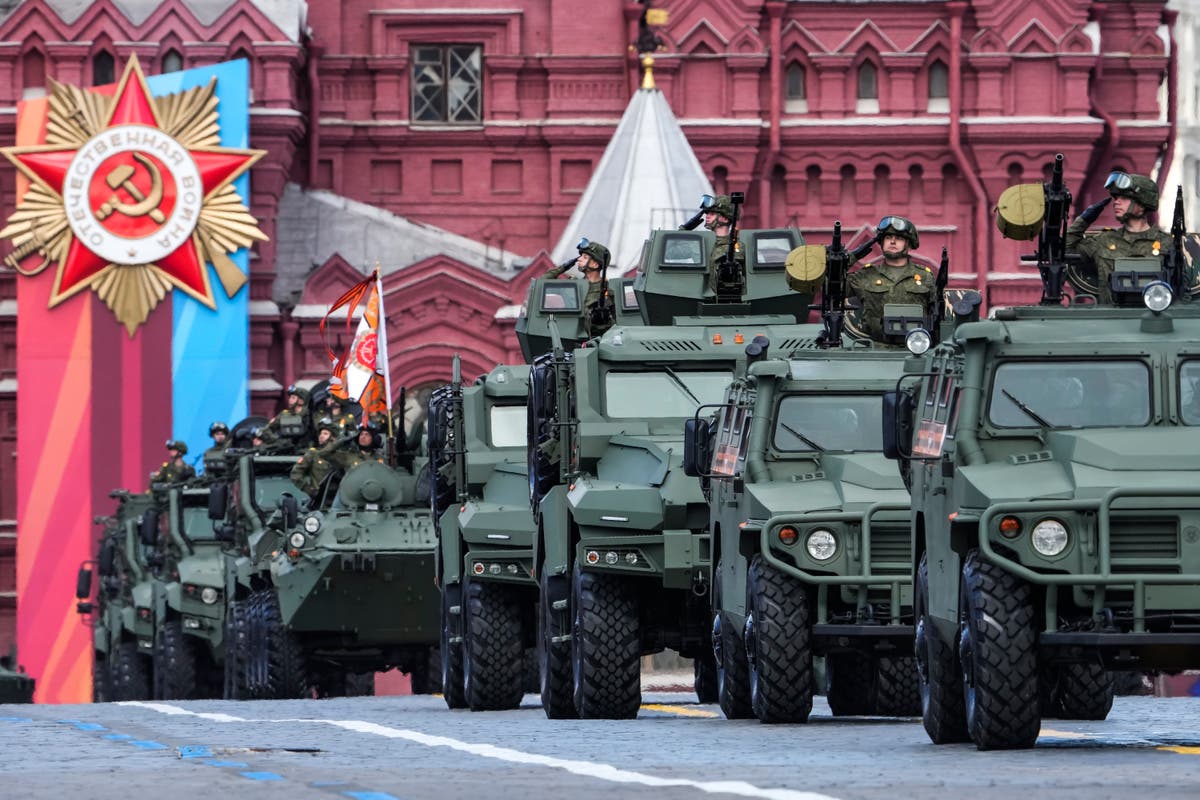Russia is wrapping itself in patriotic pageantry for Victory Day, a celebration of its defeat of Nazi Germany in World Warfare II that President Vladimir Putin has was a pillar of his practically quarter-century in energy and a justification of his transfer into Ukraine.
Though few veterans of what Russia calls the Nice Patriotic Warfare are nonetheless alive 79 years after Berlin fell to the Pink Military, the victory over Nazi Germany stays a very powerful and broadly revered image of the nation’s prowess and a key factor of nationwide identification.
Thursday’s festivities throughout Russia, led by Putin who this week started his fifth time period in workplace, recall that wartime sacrifice in what has change into its most necessary secular vacation.
The Soviet Union misplaced about 27 million individuals within the struggle, an estimate that many historians contemplate conservative, scarring nearly each household.
Nazi troops overran a lot of the western Soviet Union once they invaded in June 1941, earlier than being pushed again all the way in which to Berlin, the place the us’s hammer and sickle flag was raised above the ruined capital. The U.S., U.Okay, France and different allies mark the tip of the struggle in Europe on Could 8.
The immense struggling and sacrifice in cities like Stalingrad, Kursk and Putin’s native Leningrad — now St. Petersburg — nonetheless function a strong image of the nation’s means to prevail in opposition to seemingly overwhelming challenges.
Since coming to energy on the final day of 1999, Putin has made Could 9 an necessary a part of his political agenda, that includes shows of navy may. Columns of tanks and missiles roll throughout Pink Sq. and squadrons of fighter jets roar overhead as medal-bedecked veterans be part of him to assessment the parade. Many put on the black-and-orange St. George’s ribbon that’s historically related to Victory Day.
Putin, 71, talks often about his household historical past, sharing recollections of his father, who fought on the entrance through the Nazi siege of town and was badly wounded.
As Putin tells it, his father, additionally named Vladimir, got here residence from a navy hospital through the struggle to see staff attempting to remove his spouse, Maria, who had been declared useless of hunger. However the elder Putin didn’t consider she had died — saying she had solely misplaced consciousness, weak with starvation. Their first youngster, Viktor, died through the siege when he was 3, one in every of greater than 1 million Leningrad residents who died within the 872-day blockade, most of them from hunger.
For a number of years, Putin carried a photograph of his father in Victory Day marches — as did others honoring kin who have been struggle veterans — in what was known as the “Immortal Regiment.”
These demonstrations have been suspended through the coronavirus pandemic after which once more amid safety considerations after the beginning of the combating in Ukraine.
As a part of his efforts to burnish the Soviet legacy and trample on any makes an attempt to query it, Russia has launched legal guidelines that criminalized the “rehabilitation of Nazism” that embrace punishing the “desecration” of memorials or difficult Kremlin variations of World Warfare II historical past.
When he despatched troops into Ukraine on Feb. 24, 2022, Putin evoked World Warfare II in searching for to justify his actions that Kyiv and its Western allies denounced as an unprovoked struggle of aggression. Putin cited the “denazification” of Ukraine as a primary purpose of Moscow, falsely describing the federal government of Ukrainian President Volodymyr Zelenskyy, who’s Jewish and misplaced kin within the Holocaust, as neo-Nazis.
Putin tried to forged Ukraine’s veneration of a few of its nationalist leaders who cooperated with the Nazis in World Warfare II as an indication of Kyiv’s purported Nazi sympathies. He recurrently made unfounded references to Ukrainian nationalist figures comparable to Stepan Bandera, who was killed by a Soviet spy in Munich in 1959, as an underlying justification for the Russian navy motion in Ukraine.
Many observers see Putin’s concentrate on World Warfare II as a part of his efforts to revive the us’s clout and status and his reliance on Soviet practices.
“It’s the continual self-identification with the us because the victor of Nazism and the dearth of some other robust legitimacy that compelled the Kremlin to declare ‘denazification’ because the purpose of the struggle,” Nikolay Epplee mentioned in a commentary for Carnegie Russia Eurasia Heart.
The Russian management, he mentioned, has “locked itself up in a worldview restricted by the Soviet previous.”
